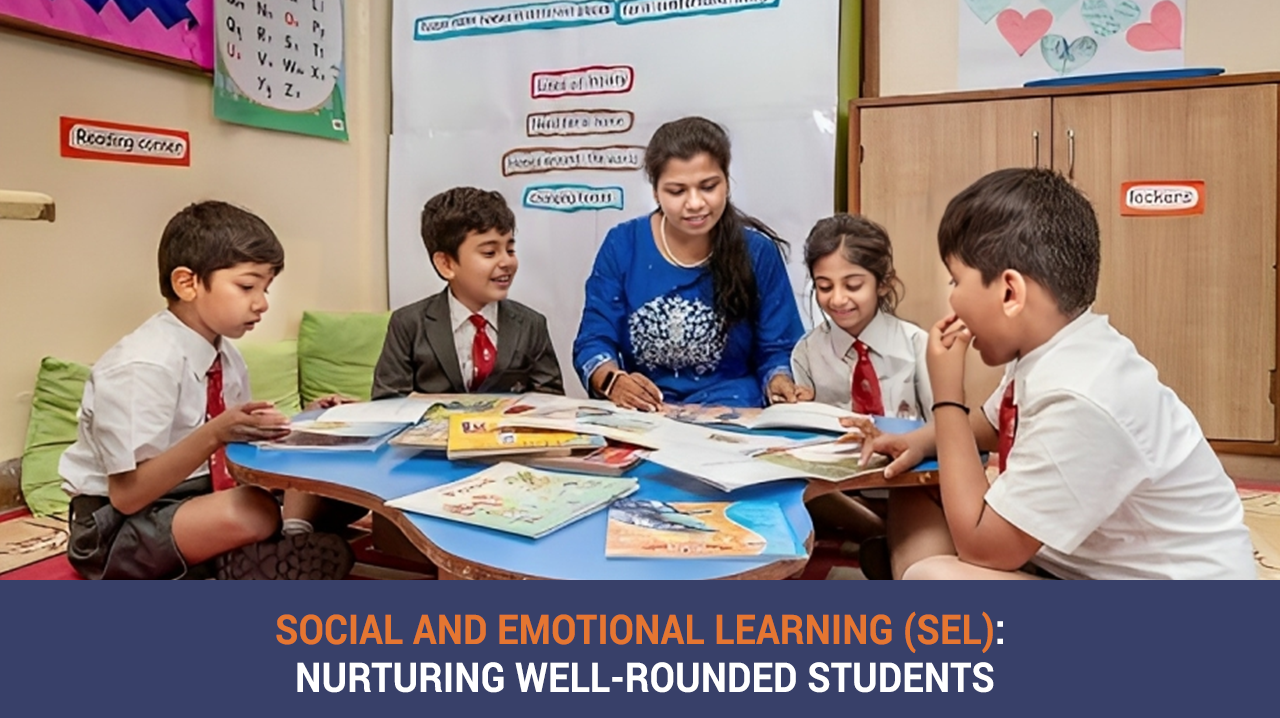Social and Emotional Learning (SEL): Nurturing Well-Rounded Students

In the always-advancing landscape of education, the center is shifting beyond academic achievements to envelop the holistic development of students. Social and Emotional Learning (SEL) arises as a significant component, supporting balanced people fit for navigating the intricacies of life. In this blog, we investigate the main five different ways SEL contributes to students’ development as all-rounders and how institutions like MIT Gurukul embrace this methodology.
- Creating Mindfulness
Social and Emotional Learning starts with mindfulness. Through practices, for example, care and reflective activities, students at MIT Gurukul are urged to figure out their emotions, assets, and regions for development. Subject matter authorities agree, this mindfulness establishes the groundwork for balanced people who can confidently explore their own personalities, making ready for a more profound comprehension of others.
- Building Strong Interpersonal Skills
SEL stresses the significance of interpersonal skills, a critical part of turning into an all-rounder. At MIT Gurukul, cooperative ventures, bunch discussions, and interactive learning environments are intended to encourage strong interpersonal connections. The capacity to impart effectively, listen actively, and team up flawlessly are skills that stretch out beyond the classroom, molding people who can flourish in assorted group environments.
- Improving Emotional Regulation
The excursion towards turning into an all-rounder includes becoming amazing at emotional regulation. SEL programs at MIT Gurukul give students apparatuses and strategies to oversee pressure, handle challenges, and respond to emotions constructively. Experts propose that people who can explore their emotions with versatility are better prepared to deal with the high points and low points of life, both academically and personally.
- Advancing Sympathy and Compassion
Compassion is a cornerstone of balanced people. MIT Gurukul coordinates SEL into its curriculum by accentuating sympathy and compassion in different parts of learning. Through writing, social examinations, and experiential activities, students figure out how to see the value in different points of view and foster a certified comprehension of others. Most authorities on the matter would agree, this compassion develops a feeling of social responsibility and plans students to contribute positively to their networks.
- Encouraging Responsible Decision-Making
A vital quality of balanced people is the capacity to pursue responsible choices. SEL outfits students with the critical thinking skills needed to evaluate situations, consider the effect of their decisions, and settle on choices that line up with their qualities. MIT Gurukul’s accentuation on moral considerations and real-world problem-solving engages students to become responsible decision-producers, both inside and beyond academic realms.
Conclusion: Supporting Holistic Excellence at MIT Gurukul
As education advances, the accentuation on Friendly and Emotional Learning turns out to be progressively essential to molding balanced people. MIT Gurukul’s commitment to SEL reflects a holistic way of dealing with education, acknowledging that academic success is only one feature of a student’s excursion. By creating mindfulness, building interpersonal skills, improving emotional regulation, advancing sympathy, and cultivating responsible decision-making, MIT Gurukul is sustaining a generation of people who succeed academically as well as compassionate, tough, and socially responsible all-rounders. As the educational landscape continues to develop, institutions embracing SEL are not simply preparing students for success in their careers; they are molding people who can contribute positively to the world, making an enduring effect in each part of their lives.

